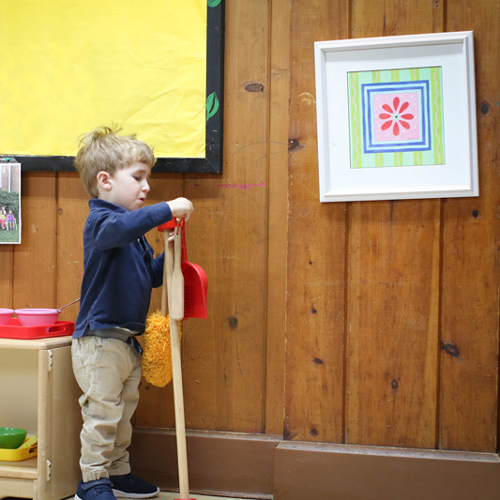We’ve all seen the memes of parents asking children about their day only to receive one word responses or none at all. School is an exciting and dynamic time for children, and sometimes the idea of recounting all the myriad of activities can be overwhelming. It helps to ask specific and encouraging questions. As parents we may want to know everything about how our child(ren) spent their time away from us. By creating a foundation for open communication from an early age, we can build a scaffold for continued sharing that can persist as our children mature.

For our youngest students, it helps immensely to know and use the terminology of the classroom. Pay attention to the words your child’s teacher uses. When students gather to listen to a story read aloud, does she call that Circle Time? Story Time? By using the same words they hear in the classroom, you draw your child’s attention back to that memory. This helps them to identify a specific event about which you can ask questions. Did you have Story Time today? Did you like the story? Sometimes students struggle to remember the plot or they simply don’t yet have the words to describe it. Instead, asking about their own feeling towards the event can encourage them to talk about it in a more comfortable way.
In general, asking students about their own feelings and reactions is a positive way to stimulate conversation. Psychologists have determined that memories are most influenced by something called the Peak End Rule. We tend to remember the peak and/or end of an experience most clearly and that defines our overall feeling about that memory. You can support positive feelings by asking your child what made him happy that day, or excited, or surprised. Recalling these instances will help to reinforce the bright spots in the day.
As students mature and become more comfortable in the classroom, they will naturally absorb the vocabulary of the materials, names of specific work and activities. Taking your cues from your child(ren), as they start to name things, you can ask about individual tasks. Again, it is helpful here to maintain a good understanding of the language used in your child’s classroom. This knowledge helps both to reinforce your child’s comfort in his grasp of new vocabulary as well as letting him know that you understand his language and experiences even if you aren’t present in the classroom all the time. Establishing your child’s feeling of, “Mom/Dad gets me” is an important building block for sharing in your relationship.
Finally, sharing is not a one way street. For many parents, it may feel slightly unimportant to share our daily experiences or anecdotes from work with our children. However, reciprocating this kind of engagement lets your child(ren) know that you value their time, and willingness to listen to you. It also provides them with an example of how to relay a story, share an experience, and give descriptions to someone who wasn’t present. We are all always learning from one another, and you might be surprised what insights your child might have for you!

Leave a Reply